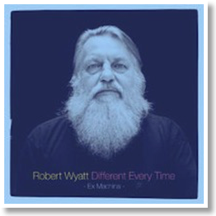January 2015
Scott Zuniga
![CDtzuniga[1]](cdtzuniga005b1005d.png)
Language of Ghosts
Self released
Spaniard, Middle Eastern, French, and Egyptian influences coalesce to tell the story that is the Language of Ghosts, Scott Zuniga’s latest recording. Impacted by Radiohead, Paul McCartney, Antonio Molina, Elliott Smith, and Donovan, Zuniga handles all song and production credits to weave a sound and writing style that is alternative, folk, indie, and, as some people describe, “cinematic.” A course through the album reveals a mix that is autobiographical and metaphorical.
Mostly somber ballads project from the album, indicative of the title. “Witness Protection Program” possesses an eerie, lachrymose aura in atmosphere and lyricism (“I never go by my real name/The kids and the dogs have fun/But you know I know what’s been done and cannot be undone”), sung as a duet with his wife Emilie. “Transylvania Crush” (“We’re gonna hang from the tree of life and burn out all the lights”) is a cryptic love poem, the title a paean to the Romanian romance of Dracula and vampires. The windswept folk “I Am a Coin” bespeaks of doom, with heaven & hell imagery, while an angelic feeling is presented in the piano-violin-viola triage of “Past, Present, Future,” with the requisite percussion and guitars.
“Isla’s Promise” mobilizes bagpipes, tympani, cello, and synth for a brighter number. “Hero” has a Paul McCartney-Freddie Mercury quality to it, and “Rock Bottom” is granted a 1970s Southern/California rock treatment. The presence of writer-filmmaker Jean Cocteau is cast in the steady indie-alternative “Blood of a Poet” while the hopelessness in “Slow Motion” is offset with the optimistic song “Starboard.”
Language of Ghosts recalls dark and quiet moments of childhood and adulthood while implementing an assemblage of instrumentation, ranging from accordion and mandolin to vibraphone and electric piano. An ambitious literary spirit drives this record, reminding listeners to connect their present to their basic roots.
by Jeff Boyce
Robert Wyatt

Different Every Time – CD 1 “Ex Machina,” CD 2 “Benign Dictatorships”
Domino Recording Company
Robert Wyatt, a one-time member of the influential ‘60s Canterbury rock band The Soft Machine, releases Different Every Time, a two-disc retrospective of key tracks in his musical arsenal. Acclaimed for works such as his former band’s self-titled 1968 release, Volume Two (1969), and Third (1970) as well as his solo excursions (1974’s Rock Bottom, 2007’s Comicopera, and 1997’s Shleep, among others), the collection pulls from psychedelic, progressive rock, and jazz inspirations.
The first CD set is initiated by Soft Machine’s greatest recording “Moon in June” before plunging into his similar Canterbury band Matching Mole’s “Signed Curtain” and “God Song.” “A Last Straw,” taken from a September 1974 London Theatre Royal Drury Lane performance, draws from contemporary ‘60s jazz makings, a vibe continued in “Team Spirit,” which employs an extended avant-jazz solo and Phil Manzanera of art-rock band Roxy Music. A take on Chris Andrews’ mid-‘60s UK hit “Yesterday Man” is also highlighted, and the rest of the disc rounds out with top-notch material.
CD two showcases Wyatt’s peak solo outing in the Elvis Costello-penned “Shipbuilding” but misses out on some important tracks such as “Sea Song,” the anti-apartheid “The Wind of Change,” “Little Red Riding Hood,” and his remake of Neil Diamond’s/The Monkees’ “I’m a Believer.” Musical collaborations with artists as varied as John Cage (1976’s “Experiences No. 2”), Björk (2004’s “Submarine”), and Nick Mason of Pink Floyd (1981’s “Siam”) grace the record. Working Week’s 1984 “Venceremos (We Will Win)” is displayed as the 12” Jazz Dance Special remix, and “Frontera,” written by Manzanera and Wyatt in 1975 and first recorded by Manzanera that same year, is given an update by the two men. Surprisingly, his work with the innovative Brian Eno is absent, considering the two have collaborated more than once.
Different Every Time serves as a sizable snapshot of an eclectic career, combining rock, Latin music, jazz, and experimental qualities. Tracing his beginnings from the 1960s Canterbury music scene to his solo output throughout the ensuing decades, the two-disc set effectively captures the reason for Wyatt’s critical respect and longevity.
by Jeff Boyce


